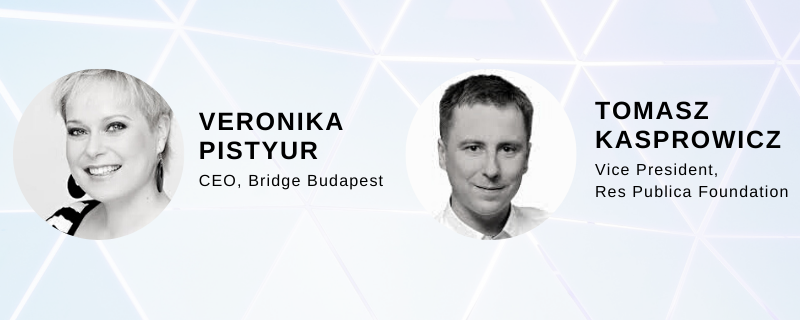Think Tank
Video Recap: US Elections’ Impact on CEE Security
6 November 2024
30 November 2020
The future workplace will most likely be divided by those with the specialist skills still needed in certain sectors and those with honed abilities to adapt with confidence to new challenges.
Many of today’s generations have been faced with new challenges when it came to their potential career paths. As the Cold War was winding down, suddenly, in most countries, the long-term loyalty which was once demanded by companies and corporations, state-owned or private, flittered away.
Gone were the “golden watches” for decades of service to a collective effort, and in stepped continued education, reskilling, but so too a flexible and – many may argue – more comfortable working environment.
Factories became automated and robots replaced a community of workers who had laboured for years to build the company’s standing in the world.
A new era of technology brought with it some difficult to accept home truths: industries shift and are destabilised, and some specialised skills might become obsolete in a future built by machines. It became apparent that many would have to switch professions two or three times, but for the next generation, this number could be a multiple of ten.
In this uncertain period, fundamental questions arise which need addressing; questions like how are we as a society supposed to cope with such drastic individual changes in our lives, and how should we prepare ourselves with the necessary tools to adapt and remain relevant?

Previously, most well-paying sectors demanded highly skilled professionals who would spend their lives devoted to mastering one area or another.
In contrast, today, there are trends pulling towards being nearly endlessly flexible and more broadly adept in one’s abilities to take on new tasks. However, this doesn’t exclude the need for some specialised expertise.
Succinctly, we can not make a recommendation for which path – specialised or generalised – someone should take as there are risks and rewards associated with either avenue; however, certain (more general) skills will be needed in a future which is sure to be volatile and mutable.
Skills like relatability, self-confidence, trustworthiness and creativity will be in need when shifting trends open up new areas of development or potentially hostile environments (e.g. COVID-19) force us to adapt radically and without warning.
It is often commented upon that the younger generations do not recognise easily the trials the previous have contended with; however, less noted is that the reciprocal is also true.
Moreover, those who will most likely be leading more established companies might struggle to understand the perspective and needs of the younger workforce. These difficulties in understanding will, of course, have offshoots into our political and societal lives, and if ignored, they could lead to continued polarisation along both generation and ideological lines.
Therefore, intergenerational knowledge, as well as multilateral political sympathies, will be key to aiding our societies to cope with the – at this point innumerable – challenges we will face in the coming decades of automation and labour market shifts.
An ever-growing mindset, one reflecting empathy and displaying solidarity for those who are either left behind or never had the opportunities to develop, is the universal skill which all of us, no matter one’s age or political inclination, can strengthen the ties of our collective and global society.
This is a summary of a discussion between Tomasz Kasprowicz (Vice President, Res Publica Foundation) and Veronika Pistyur (CEO, Bridge Budapest) at the New Europe 100 Forum on 27-28 October 2020, edited by Galan Dall, Editor-at-Large of Visegrad Insight. Find out more about the upcoming New Europe 100 Forum, future activities and our partners here. For updates, follow @NewEurope100.
The article is part of a project supported by the International Visegrad Fund.